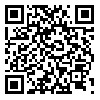Volume 11, Issue 3 (Volume11, Issue 3 2023)
JCP 2023, 11(3): 16-30 |
Back to browse issues page
Download citation:
BibTeX | RIS | EndNote | Medlars | ProCite | Reference Manager | RefWorks
Send citation to:



BibTeX | RIS | EndNote | Medlars | ProCite | Reference Manager | RefWorks
Send citation to:
Rajabiyan Dehzireh M, Maghami M, Hoseini S M A. The effect of interactive educational simulation on perceived motivational atmosphere and emotional self -awareness of students. JCP 2023; 11 (3) :16-30
URL: http://jcp.khu.ac.ir/article-1-3713-en.html
URL: http://jcp.khu.ac.ir/article-1-3713-en.html
Phd student of educational technology, Allameh Tabataba'i University, Tehran, Iran , m.rajabiyan1393@gmail.com
Abstract: (966 Views)
The aim of this study was to examine the impact of interactive simulation on students perceived motivational climate and emotional self-awareness. The research method was quasi-experimental and of the type of pre-test-post-test designs with the control group. The statistical community of the present study was all the fourth elementary students of the 12th District of Tehran in the academic year 2022-2021, 60 of whom (30 of the test group and 30 of the control group) were selected as samples by the available sampling method. The experimental group trained using PhET simulation and the traditional control group in six one-hour sessions. The pre-test-the post-test of the two groups was performed using the questionnaire. Research tools included the sarmed perceived motivational climate questionnaire (2011) and Kauer et al emotional self-awareness (2012). The analysis of the research data was done with a multivariate covariance analysis test. The findings of the study showed that interactive simulation influenced the perceived motivational climate and emotional self-awareness in students (P<0/001). Interactive simulation on the components of perceived motivational climate (teacher-led learning, follow-up of comparison by students, concerns about mistakes, willingness to compare learners by teacher) had an impact (P<0/001). Interactive simulation influenced the components of emotional self-awareness (recognition, identification, conversion, problem solving) (P<0/001). As a result, a variety of educational simulations can be used to teach learners in other subjects and study districts.
Keywords: educational simulation, perceived motivational climate, emotional self-awareness, elementary students.
Type of Study: Research |
Subject:
Educational Science
Received: 2023/06/21 | Accepted: 2023/12/11 | Published: 2024/01/29
Received: 2023/06/21 | Accepted: 2023/12/11 | Published: 2024/01/29
Send email to the article author
| Rights and permissions | |
 |
This work is licensed under a Creative Commons Attribution-NonCommercial 4.0 International License. |





